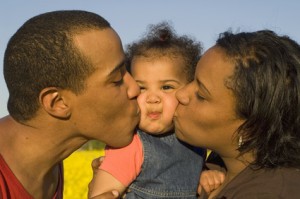I love my wife. She is the most amazing woman I know. Still, sometimes she drives me crazy. She does things that…well…just don’t make sense. Take the dishwasher for example. Watching her load the dishwasher almost hurts. I have to do it for the sake of getting it to full capacity. She has no sense of keeping the covers neat while we sleep either. She pulls them, pushes them over the edge, wrinkles them.
Right now, many of you are probably thinking, “I feel sorry for your wife.” Don’t worry. I drive her crazy sometimes too. (…even though I, like Mary Poppins, am “practically perfect in every way.” My wife just sighed and laughed as I typed that self-description. I “may” be exaggerating.) The dishwasher thing… she just laughs, shakes her head, and watches me load it. She thinks I’m crazy for how I cocoon in the covers. But here’s the point, the reason I bring it up. My wife and I share a deep love for one other and that love shapes how we respond to any “issues” that arise.
In fact, when such “issues” arise (or even more significant concerns), married couples are faced with a choice. They can start to rant and rave. They can resort to criticism, contempt, and blame. Or they can let the viral warrior of kindness arise in our hearts.
I’ve heard many couples resort to criticism, contempt, and blame. I’m sure you have too.
- “What’s wrong with you? You can’t do it that way.”
- “You’re ridiculous. Get out of my way.”
- “You can’t even wash clothes right. I have to do it to make sure it’s done right!”
- “It’s your fault we can’t have friends over. You can’t even put your socks away.”
- “I don’t know why I put up with you and your incompetence. You’re just like your….”
- “What are you, stupid? Think about what you just said.”
The list of such comments can go on. You’ve heard them, I’m sure. However, in the moment of that critical, contemptuous, or blaming comment, love has been cast out the window. The armor of contempt with its weapons of criticism, disgust, hurt, and defensiveness, has been donned. Put on this armor and cast love out the window often enough and your marriage dies. A lack of kindness delivers death blow after death blow, slowing killing it. Sometimes it’s not even the words that we use but the tone with which we say them. Even seemingly neutral words given with a tone of sarcasm, condescension, or resentment communicate criticism and contempt.
Love, on the other hand, gives voice to kindness in such situations. When your spouse does something that “drives you crazy,” love puts on the armor of kind words and kind actions. Kindness accepts different ways in which our spouses do things and view things. In fact, the viral warrior of kindness goes a step further and recognizes that our spouses’ way of doing things and viewing things is actually credible, possibly even better than our way!
The viral warrior of kindness also celebrates a job well-done rather than criticizing that it’s “not done to my standards.” Kindness recognizes that there may be multiple ways to complete a job, one as good as the next. The very fact that your spouse participates in “getting the work done” is an expression of love worthy of recognition by the viral warrior of kindness.
As a result, the viral warrior of kindness compliments and expresses gratitude for everything our spouses do to make our home place of joy and peace. In fact, kindness makes a point of seeking daily opportunities to express appreciation and admiration for their spouse and for what their spouse has done.
The next time you find yourself at odds with your spouse on how to load a dishwasher, fold a towel, squeeze the toothpaste, clean the bathroom, make a bed, or any other area of possible animosity, realize you have a choice: respond with kindness or not. Let me rephrase that: respond with love or not? After all, love is kind. Love employs the viral warrior of kindness.









